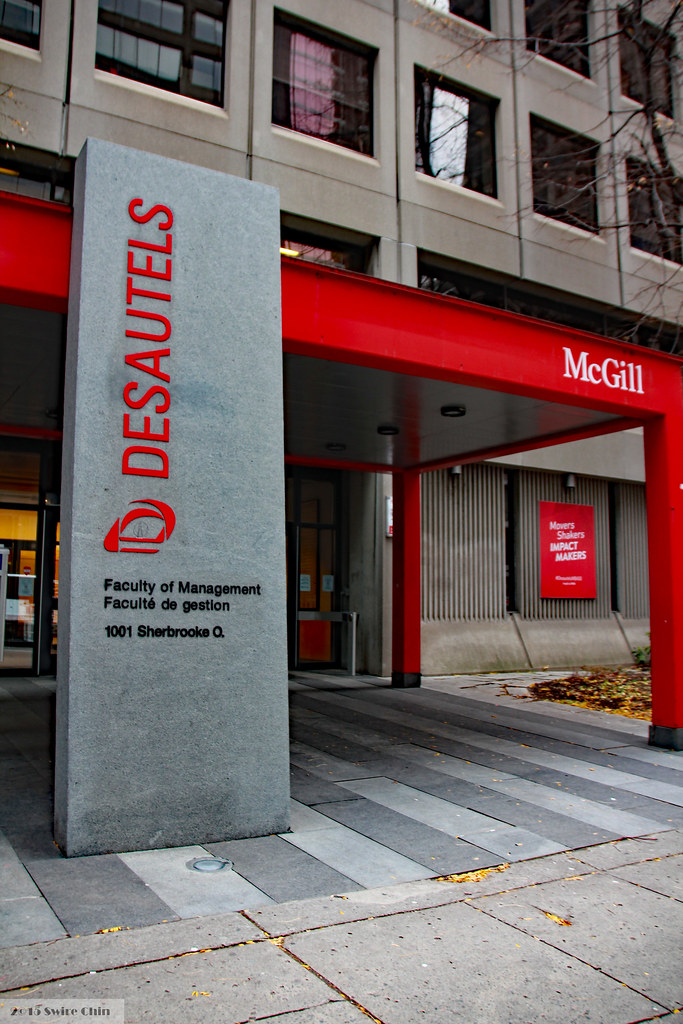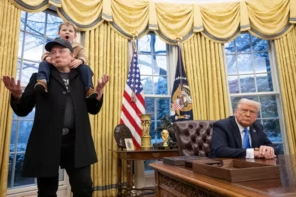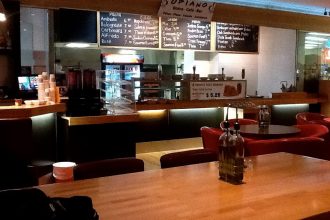On Monday, February 7, the candidates running in the 2022-2023 election for the Management Undergraduate Society Board of Directors convened for the annual Election Debate on Zoom. The election closes at 5:00pm on Thursday, February 10. The event started with a series of short opening remarks from each candidate, followed by questions from moderator and current board president Noah Gunderman, and ended with an open question period in which all members of the audience could participate. The following is a list of the candidates, as well as what they had to say about their respective platforms.
PRESIDENT
As one of the two presidential candidates, Delphine Élie St-Germain emphasized the importance of inclusivity and accessibility as the foundations for her two-pillar platform. St-Germain talked about her own experience as the lone female VP on the MUS executive team this past year, sharing the challenges she had to face in this role and her commitment to increase the level of female representation in leadership roles throughout the MUS. As part of her plans to improve inclusivity for underrepresented students in Desautels, St-Germain consistently stressed that the relationships between students and faculty are key to creating actionable change. St-Germain also provided promising updates on her conversations with members of the administration to create a convenient one-stop online platform for Desautels students that would consolidate the abundance of student resources available into one location.
David Fishman took a unique approach to his three minutes; instead of focusing on the pillars of his platform, he talked about his affection for the MUS as an organization. Tying in his experiences throughout the years, Fishman made the statement that, despite the appearance of bureaucracy and structure, “the MUS is just people.” When asked about the current diversity issues that the MUS faces, Fishman stated his belief that the problem is primarily a result of social causes, not organizational flaws. He believes that disenfranchised students should be given more opportunities to run for leadership positions through empowerment and encouragement by their peers. Fishman’s plans to improve Desautels’ COVID-19 response by slowly opening up both study spaces and social spaces in the building to provide incoming students with safe opportunities to experience Desautels culture in-person.
SENATOR
Ghali Benjelloun Touimi’s platform centered around his big goals to create change on campus. Touimi discussed that McGill’s current mental health programs do a great job of solving the “how” of handling stress, but a poor job of explaining “why” students need to resolve their stress in a healthy way. Touimi wants to change this through his find-a-way campaign, which would focus on providing students with the necessary reasons to seek out help when they need it. Another major platform point is his ambition to bring higher quality restaurants onto campus to supplement the current food offerings available to students. On both points, Touimi recognizes that the administration of McGill has historically struggled to make large-scale changes in a timely fashion, and he wants to make sure that the work can consistently move forward by taking steps like continuous assessments of the need for such changes, and a steady chain of discourse with administration.
Adam Moin’s platform is based on the relationships he has fostered with both students and members of faculty across campus. Through his conversations with BCom Wellness advisor Samara Yesovitch, Moin learned that McGill has many programs to help students with their mental health that are heavily underutilized, primarily because of the stigma surrounding such programs. Moin wants to implement a mental health ambassador program, wherein students that are knowledgeable about these opportunities provide a personal connection that can make students feel comfortable participating. Moin also talked about including a street harassment module on MyCourses to educate students about the reality of street harassment in neighbourhoods like the Ghetto, with the goal of keeping students safe.
SSMU REPRESENTATIVE
Inayyat Seth is the current U0 representative who talked about the importance of time commitment and dedication to the role of SSMU representative. With the countless meetings that representatives are required to sit through as a liaison to SSMU, Seth appealed to her dedication and passion for the wellbeing of all students in the MUS as her primary motivation to run for this position. Seth believes in the importance of transparency across all levels of the organization to hold members of the Board accountable for their decisions and to ensure that students are informed about impactful changes. On the point of communication, Seth emphasized her belief that “One-on-one conversations are the best way to communicate what is going on [in the MUS].”
Harry Griffith had a clear three-part platform. Griffith wants to implement a MyFuture-type platform for clubs, accessible to all students in the MUS, to ensure that everyone is aware of the full breadth of involvement opportunities available. He also aims to increase transparency by creating student focus groups to get students’ opinions on Board decisions and advocating for more student-voted decisions. Finally, Griffith wants to push for SSMU to institute better mental health support systems, specifically through peer-to-peer connections. When questioned about the practicality of his plans for SSMU, Griffith stressed the importance of communication and collaboration across the various departments involved, starting with a unified push from within the MUS to enable this change.
U1 REPRESENTATIVE
John Oh runs unopposed for the position of U1 representative, and his platform rests on the three pillars of inclusivity, openness, and active listening. Instead of talking about any grand plans Oh said that “what is more important than promises is being open to talk and listen to concerns.”
U2 REPRESENTATIVE
Ethan Milne strongly believes that the role of U2 representative is to represent the best interests of the students, forming a connection between the students and the Board. His three primary goals are to create a centralized calendar to organize clubs and events across the MUS, to improve mental health in Bronfman by developing peer support systems, and to act as an open ear for all students by opening an anonymous line of communication.
Rose Chedid told the story of her early experiences in Desautels; how she learned about the culture of Bronfman, not through communication from the MUS, but from upper year students in key student events like Frosh and OAP. Chedid wants to encourage this kind of inclusive environment as we slowly return to in-person modes of learning. Chedid also has an ambitious plan to recycle a greater percentage of masks in Bronfman, which she plans to tackle with the VP SEDI.
U3 REPRESENTATIVE
Alexander Sukhanov longs for the days where Bronfman was a hub for social student gatherings, which is what forms the foundation for his platform. Understanding that restrictions are still in place, Sukhanov wants to do his best to open up social spaces for students as those restrictions slowly loosen, accommodating the social aspect that is key to our education. Sukhanov has plans to implement a Study Buddy initiative, which will connect upper year students with new students to share the culture of Desautels that many students have missed out on due to COVID-19.
Henry Fowler stressed the importance for candidates to be heavily involved in all aspects of student life, demonstrating their dedication and passion for student life. His platform, with the three major pillars of wellbeing, engagement, and transparency, was built on the foundation of encouraging teamwork and collaboration amongst students. By fostering a sense of unity, Fowler believes that students can both support each other through their involvement in the MUS while creating real actionable change as well.








